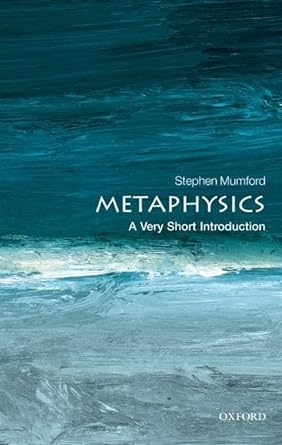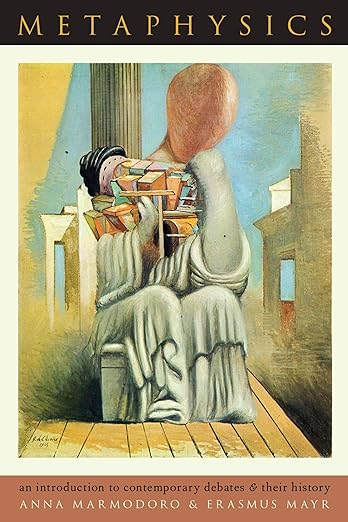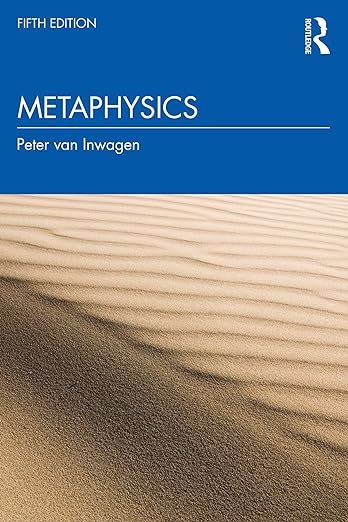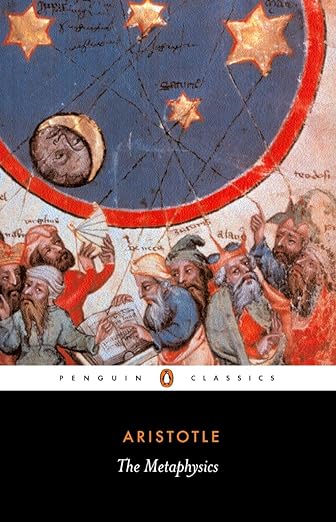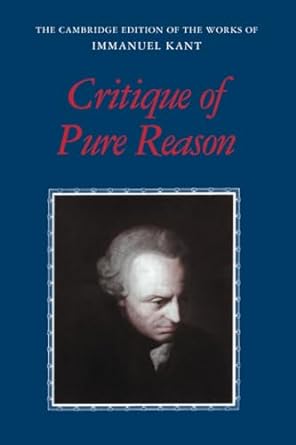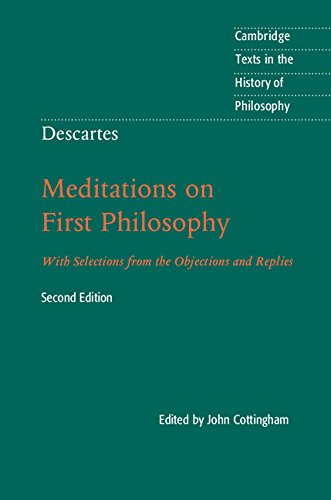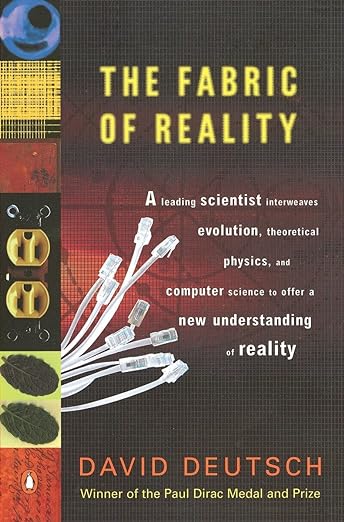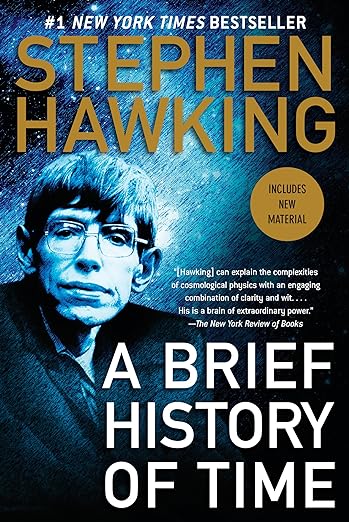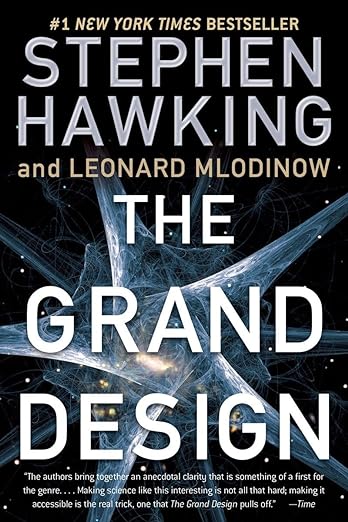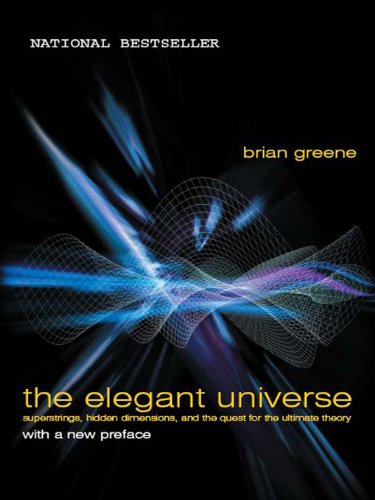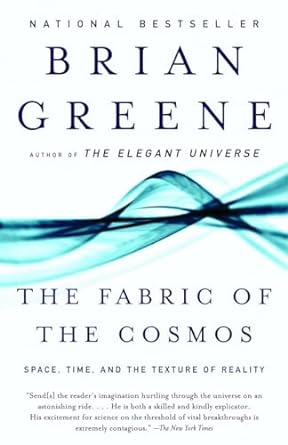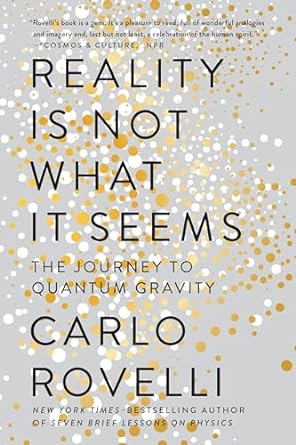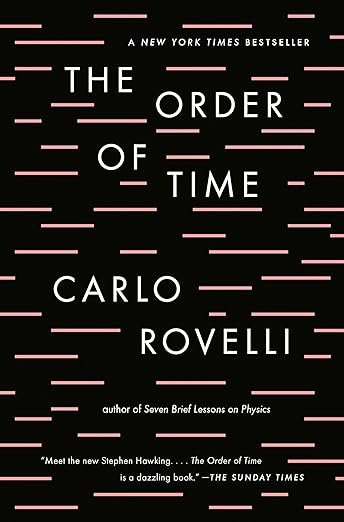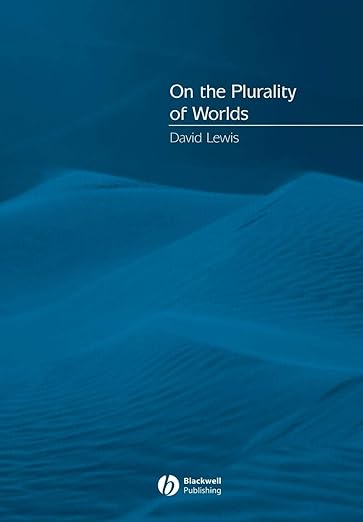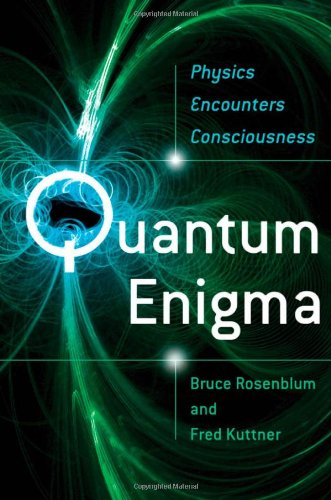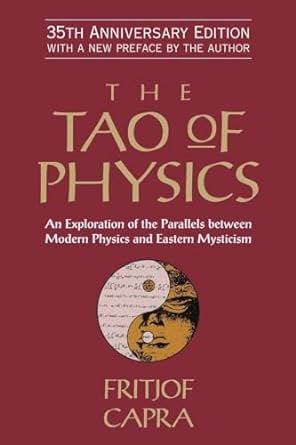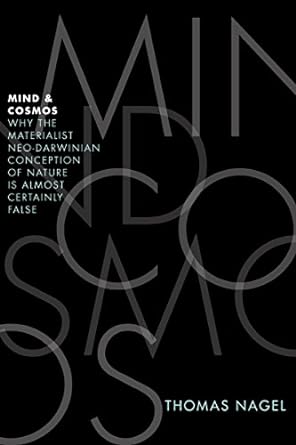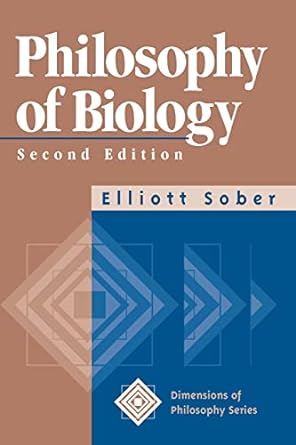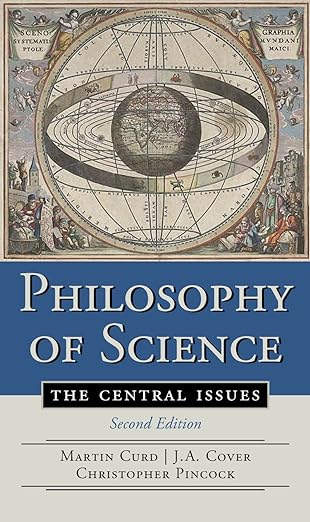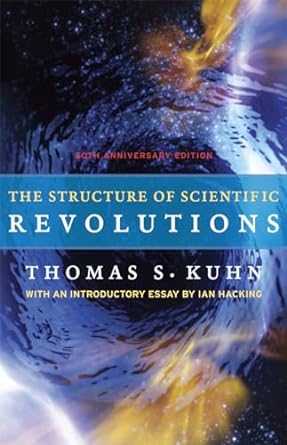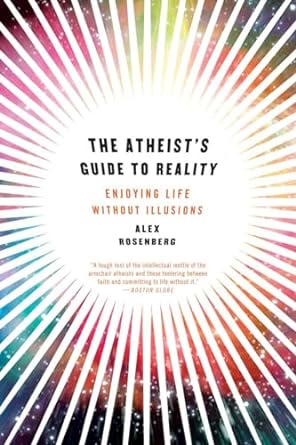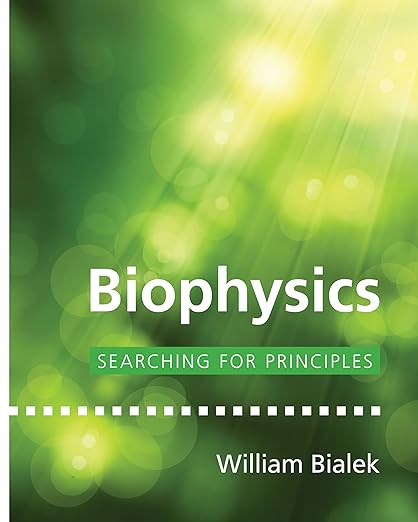Best books on metaphysics for scientists
Reading books on metaphysics is essential for scientists because it broadens your understanding of the conceptual foundations underlying your field. Metaphysical inquiry can lead to more profound scientific concepts and theories, challenge unreflected assumptions, and inspire innovative approaches to scientific problems. However, what are the best books on metaphysics for scientists?
What is Metaphysics?
Metaphysics is a branch of philosophy that explores the fundamental nature of reality, existence, and the underlying principles that govern the natural world. Scientists often view metaphysics skeptically because it lacks empirical evidence central to scientific inquiry.
Unlike science, which relies on observation and experimentation, metaphysics deals with abstract questions about the nature of existence and reality (e.g., the nature of consciousness or the concept of time) that cannot be tested or observed.
However, exploring profound, foundational questions, philosophical analysis, and its potential to challenge and inspire scientific thinking makes metaphysics attractive for many scientists.
Why Metaphysics Matters in Science
Metaphysical exploration plays a crucial role in scientific inquiry by providing scientists with intellectual tools to reflect on the broader implications of their work and by questioning the fundamental assumptions of scientific theories.
By engaging with metaphysical concepts, scientists can develop a more integrated understanding of their disciplines, enhancing both theoretical and practical insights. This critical examination can lead to the refinement of existing models and the development of new hypotheses.
In addition, ethical considerations help to decide which experiments to do – or not, what methods are allowed, and what is considered scientific integrity or questionable research practices and scientific fraud.
Accessible Introductions to Metaphysics
Let us start with some introductory texts for beginners. Below, you will find more complex books that will satisfy more advanced readers.
Metaphysics: A Very Short Introduction, by Stephen Mumford
Stephen Mumford’s “Metaphysics: A Very Short Introduction” offers a concise overview of the main topics in metaphysics, including existence, objects, and properties. This short book provides a concise and accessible overview of the main topics in metaphysics, making it ideal for beginners. Its brevity ensures that readers are not overwhelmed. However, some topics may be oversimplified, requiring further reading for a deeper understanding.
Metaphysics: An Introduction to Contemporary Debates and Their History, by Anna Marmodoro
Anna Marmodoro’s “Metaphysics: An Introduction to Contemporary Debates and Their History” explores contemporary metaphysical debates within their historical context, offering insights into how these ideas have evolved. This philosopher’s perspective is helpful for scientists as it highlights the ongoing dialogue between philosophy and science. However, some critics note that the book assumes a background in philosophy.
Metaphysics, by Peter van Inwagen
Peter van Inwagen’s “Metaphysics” is a thorough introduction to the field, covering topics like free will, identity, and the nature of reality. Its detailed approach makes it valuable for scientists seeking a deeper understanding of metaphysical issues. The primary critique is that van Inwagen’s analytic style can be dense, potentially deterring readers unfamiliar with philosophical jargon.
Classic Texts in Metaphysics
In the history of philosophy, there are many essential works on metaphysics by philosophers such as Plato, Baruch Spinoza, Gottfried Wilhelm Leibniz, Friedrich Nietzsche, and Martin Heidegger – among many others.
However, to be honest, despite their profound influence, they may not be directly helpful for engaging with contemporary debates, which often address more recent scientific and philosophical developments.
The following three seminal books are considered essential on the reading list for anyone beginning their journey into metaphysics. They lay the foundational concepts and methods that have shaped philosophical thought for centuries.
Metaphysics, by Aristotle
Aristotle’s “Metaphysics” introduces fundamental metaphysical concepts such as substance, causality, and potentiality. Aristotle’s systematic approach and thorough analysis set the groundwork for much of Western philosophy.
Critique of Pure Reason, by Immanuel Kant
In “Critique of Pure Reason,” Kant explores the limits of human understanding and the conditions of possible experience. This work is essential for scientists because it challenges the notion of objective knowledge, emphasizing the role of perception and cognition. It also challenges scientists to consider the limits of human understanding and the conditions of possible experience.
However, its dense and complex prose can be daunting for readers.
Meditations on First Philosophy, by René Descartes
In “Meditations on First Philosophy,” Descartes describes his method of doubt and emphasis on rational inquiry. It profoundly influenced scientific methodology and philosophical thought. His meditations on existence, the mind-body problem, and the existence of God are foundational.
Although foundational, critiques argue that Cartesian dualism is problematic because it fails to account for the extensive evidence linking mental processes to physical brain activity, and it is challenged by contemporary theories that more cohesively integrate mind and body.
Contemporary Metaphysics for Scientists
Below, you will find my very personal selection of books on metaphysics that I find particularly inspiring for scientists.
I left out hardcore philosophers on metaphysics, such as David Wiggins, Hugh Mellor, Jonathan Lowe, Tim Crane, and Adrian Moore. They wrote excellent books about metaphysics, but these works are often deeply theoretical and highly specialized, making them less accessible.
The Fabric of Reality by David Deutsch
David Deutsch’s “The Fabric of Reality” exemplifies how metaphysical questions intersect with scientific theories across various disciplines. Deutsch explores how we come to understand reality, crucial for scientific methodology and the development of scientific theories.
He intends to integrate quantum mechanics, epistemology, the theory of computation, and the theory of evolution. However, the book is dense and covers a wide range of topics. Some of Deutsch’s ideas, for example, about the multiverse, were criticized as too speculative.
A Brief History of Time, by Stephen Hawking
Stephen Hawking’s “A Brief History of Time” explores cosmology, black holes, and the nature of time, bridging the gap between science and metaphysics. This book is significant for scientists as it offers a metaphysical perspective on physical theories, making complex concepts accessible. Critics note that its simplifications might leave out important technical details.
The Grand Design, by Stephen Hawking
In “The Grand Design,” Stephen Hawking examines the origins of the universe and the role of laws of nature, suggesting that the universe can create itself from nothing. This book is helpful for scientists as it challenges traditional metaphysical concepts and offers a modern view of cosmology. Critics contend that Hawking’s dismissal of philosophical questions is overly simplistic.
The Elegant Universe, by Brian Greene
Brian Greene’s “The Elegant Universe” explores string theory and the nature of space and time, providing insights into the fundamental structure of the universe. This book is valuable for scientists as it integrates metaphysical questions with cutting-edge physics.
However, critics argue that it glosses over string theory’s speculative aspects and unresolved issues and that readers might overestimate the theory’s status, as it lacks empirical evidence and remains one of many competing models in theoretical physics.
The Fabric of the Cosmos: Space, Time, and the Texture of Reality, by Brian Greene
Brian Greene’s “The Fabric of the Cosmos” provides a comprehensive overview of our current understanding of space and time, blending metaphysical questions with scientific discoveries.
This book is significant for scientists seeking to understand the implications of theories like relativity and quantum mechanics. Critics argue that Greene’s explanations, while engaging, may oversimplify complex ideas.
The Character of Physical Law, by Richard Feynman
Richard Feynman’s “The Character of Physical Law” explores the nature of physical laws and their role in scientific discovery. This book is useful for scientists as it highlights the interplay between empirical evidence and metaphysical reasoning. Critics suggest that Feynman’s informal style may overlook deeper philosophical issues.
Reality Is Not What It Seems: The Journey to Quantum Gravity, by Carlo Rovelli
Carlo Rovelli’s “Reality Is Not What It Seems” investigates the nature of space, time, and quantum gravity, offering a metaphysical perspective on modern physics. This book is valuable for scientists interested in the foundational questions of their field. However, some critics argue that Rovelli’s speculative ideas lack empirical support.
The Order of Time, by Carlo Rovelli
In “The Order of Time,” Carlo Rovelli rethinks our understanding of time, drawing on both physics and philosophy. This book is significant for scientists as it challenges conventional notions and encourages a deeper inquiry into the nature of time.
Critics argue that while Rovelli’s profound reflections on the nature of time are thought-provoking, they may lack the empirical clarity and specificity expected in scientific discourse.
On the Plurality of Worlds, by David Lewis
David Lewis’s “On the Plurality of Worlds” posits that countless possible worlds exist just as real as our own, a concept brought to life in numerous Marvel movies. This idea holds particular significance for scientists in physics and cosmology, providing a framework for exploring modal realities.
However, critics frequently question the plausibility and necessity of Lewis’s possible worlds theory. However, the frequent use of this concept in multiple science fiction books and movies has greatly popularized the idea.
Quantum Enigma: Physics Encounters Consciousness, by Bruce Rosenblum and Fred Kuttner
“Quantum Enigma” by Bruce Rosenblum and Fred Kuttner explores the relationship between quantum mechanics and consciousness. This book is important for scientists as it raises fundamental questions about the nature of reality and observation.
Critics argue that the book overstates the implications of quantum mechanics on consciousness, venturing into areas that lack rigorous scientific support and potentially misleading readers about the current consensus in the scientific community.
The Tao of Physics, by Fritjof Capra
Fritjof Capra’s “The Tao of Physics” draws parallels between modern physics and Eastern mysticism, suggesting that both reveal a similar underlying reality. This book is useful for scientists interested in interdisciplinary approaches and the philosophical implications of their work.
However, some critics consider Capra’s claim of parallels between Western thought and mysticism overly speculative and not scientifically rigorous.
Mind and Cosmos: Why the Materialist Neo-Darwinian Conception of Nature Is Almost Certainly False, by Thomas Nagel
Thomas Nagel’s “Mind and Cosmos” challenges the materialist view of the universe, arguing that Darwinian evolution cannot fully explain consciousness and rationality.
This book is significant for scientists interested in the limitations of current scientific paradigms and the potential need for new metaphysical perspectives in understanding life and consciousness. Critics argue that Nagel’s critique lacks empirical evidence and may be overly speculative.
The Philosophy of Biology, by Elliott Sober
Elliott Sober’s “The Philosophy of Biology” explores philosophical questions related to biology, including the nature of biological explanations, the concept of fitness, and the theory of evolution.
This book provides life scientists with insights into the philosophical underpinnings of biological research and theory, making it easier to understand and critically evaluate the foundational concepts in their field.
However, some readers may find this philosopher’s analysis dense and challenging without a background in philosophy.
Philosophy of Science: The Central Issues, edited by Martin Curd and J. A. Cover
Martin Curd and J. A. Cover’s “Philosophy of Science: The Central Issues” is an introductory textbook that covers essential topics in the philosophy of science, including the nature of scientific theories, explanation, and the relationship between science and metaphysics.
I love this heavy anthology. It provides a comprehensive overview of philosophical issues that directly impact scientific practice, making it highly relevant for life scientists who wish to understand the broader implications of their work.
However, the book’s breadth means it may not go deeply into specific topics of interest to all readers.
The Structure of Scientific Revolutions by Thomas S. Kuhn
Thomas S. Kuhn’s “The Structure of Scientific Revolutions” introduces the concept of paradigm shifts in scientific progress, arguing that scientific revolutions fundamentally change the nature of scientific inquiry. At the time of publishing, it was a completely new approach to thinking about scientific progress.
Life scientists can benefit from understanding how scientific paradigms shift and the role of metaphysical assumptions in these transformations, particularly in fields like evolutionary biology and genetics.
An essential critique of Kuhn’s work is that the definition of the general term “paradigm” is too variable in his main work and later books. It has also been criticized that his concepts can be seen as overly relativistic and may undermine the objective nature of scientific progress and the cumulative advancement of scientific knowledge.
The Atheist’s Guide to Reality, by Alex Rosenberg
Alex Rosenberg’s “The Atheist’s Guide to Reality” presents a naturalistic view of the world, arguing that science can answer all meaningful questions. This book is particularly useful for scientists interested in the intersection of science and philosophy.
However, some critics argue that Rosenberg’s dismissal of metaphysical questions outside scientific inquiry is overly reductive.
Biophysics: Searching for Principles by William Bialek
William Bialek’s “Biophysics: Searching for Principles” explores the fundamental principles underlying biological systems, touching on philosophical questions about the nature of life and organization.
This book integrates physical and metaphysical perspectives, offering life scientists a deeper understanding of the principles governing biological complexity and the metaphysical questions these principles raise.
However, the technical content may be challenging for readers without a strong background in physics or mathematics.
What can scientists learn from metaphysical concepts?
My very subjective selection of books above offers a wealth of concepts that can deepen scientists’ understanding of their fields. By exploring these concepts, you might develop a more nuanced perspective on their research and its broader implications.
We can explore different ways to understand the nature of existence and the first principles that govern the natural world and the human experience.
Metaphysical concepts challenge us to think critically about our up-to-now unreflected assumptions of the nature of reality. This exploration can lead to more profound scientific theories and a greater appreciation of the mysteries of the universe.
Here are just a few scientific fields that profit from a broader perspective:
The Intersection of Human Understanding and the Nature of Human Agency
Considering up-to-now unreflected metaphysical concepts in scientific research encourages scientists to critically evaluate their assumptions about reality, the nature of mind, our own consciousness, free will, and what it means to be a human being.
This exploration can significantly improve research, e.g., in natural science, neuroscience, medicine, and psychology.
The Relationship Between Mind and Matter
The relationship between mind and matter is a central topic in both metaphysics and science.
Metaphysical inquiry may lead to profound questions about the nature of human reason and the nature of human agency.
Understanding metaphysical perspectives on consciousness can inform scientific studies in neuroscience, psychology, and artificial intelligence, fostering interdisciplinary collaboration.
The Concept of Time and Space
Metaphysical inquiries into the nature of time and space can enhance scientific theories in physics, cosmology, neuroscience, and psychology. By considering different philosophical views, scientists can develop more comprehensive models that account for the complexities of these fundamental concepts.
The Concepts of Identity, Heredity, and Evolution
The metaphysical exploration of concepts such as identity, change, and the essence of life can provide deeper insights into the mechanisms of heredity, evolution, and the nature of living organisms.
This can help address foundational questions about what constitutes a species, the nature of genetic information, and the philosophical implications of genetic modification.
The Concepts of Personhood, Consciousness, Life, and Death
The metaphysical investigation of life, death, and the nature of personhood is crucial in medical science and bioethics. These inquiries can shape our understanding of health, illness, and the ethical dimensions of medical interventions, including end-of-life care, organ transplantation, and genetic therapies.
Exploring the metaphysical questions surrounding consciousness and personal identity can lead to more nuanced bioethical guidelines and medical practices. It can guide scientists and medical practitioners in making decisions that align with principles of scientific integrity and moral philosophy.
Practical Applications of Metaphysics in Scientific Research
Enhancing Scientific Theories Through Metaphysical Insights
Metaphysical insights can enhance scientific theories by providing new frameworks for understanding complex phenomena and adopting a new way of thinking about the human mind, human nature, and the world around us. By integrating philosophical concepts, scientists can develop more robust and comprehensive models.
Ethical Implications of Metaphysical Theories in Science
Metaphysical theories often have significant ethical implications for scientific research. By considering the philosophical dimensions of their work, scientists can address ethical questions related to the impact of their discoveries on society and the environment.
Acknowledgments
I have used AI systems, including Grammarly, Google Gemini, and ChatGPT, to enhance the English and comprehensiveness of this article. This post contains affiliate links, meaning I get a small commission if you decide to purchase through my link. Thus, you support smartsciencecareer at no cost to you!
Recommended reading
The following articles may also interest you:
- How to become an expert in your scientific field?
- Best Books on Communication
- How To Write Faster: 19 Efficient Ways To Finish My Publication
- 10 simple strategies to increase the impact factor of your publication
- 28 Tips to Get More Citations for Your Publications
- What is the best publication strategy in science?
- Do I need nature or science papers for a successful career in science?
- Should I publish negative results, or does this ruin my career in science?
- What is a substantial contribution to a paper?
- Which bibliometric data are relevant for a research career?
- Should I aim for co-authorships on high-impact papers?
- What is a postdoc?
- How to become a professor?
- 20 Strengths and Weaknesses of Leaders in Science



